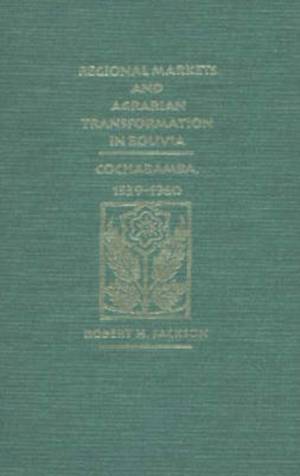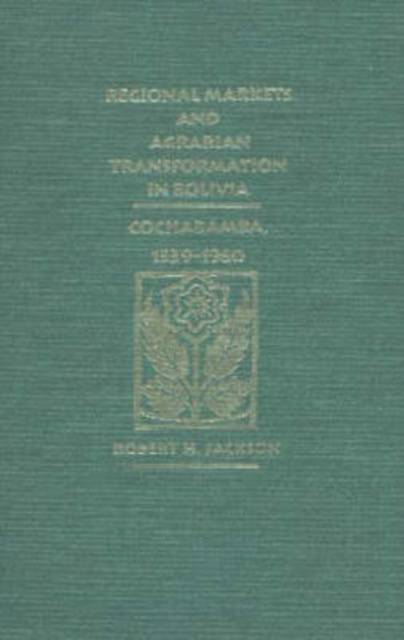
- Retrait gratuit dans votre magasin Club
- 7.000.000 titres dans notre catalogue
- Payer en toute sécurité
- Toujours un magasin près de chez vous
- Retrait gratuit dans votre magasin Club
- 7.000.0000 titres dans notre catalogue
- Payer en toute sécurité
- Toujours un magasin près de chez vous
Regional Markets and Agrarian Transformation in Bolivia
Cochabamba, 1539-1960
Robert H JacksonDescription
In a groundbreaking volume, Professor Jackson seeks to discover when and how modernity supplanted the colonial era in Bolivia. The rural economy, structure of land tenure, and hacienda labor arrangements in the Andean region are carefully delineated through a case study of Cochabamba, a key region in the central valley of Bolivia, to trace changes in patterns present since the sixteenth century.
Between 1840 and 1930, shifts in regional markets and changes in government policies resulted in hacienda owners earning less and incurring greater debt, which inevitably led to the insolvency of many hacienda owners resale of colonial-era estates, and an increase in the number of peasant landowners. These changes, in turn, set in motion events leading to the 1953 agrarian reform movement.
"An ambitious book that will contribute to our re-thinking of Andean economic history, of dependency theory, and of ethnohistory."--Eric Van Young, University of California, San Diego
Spécifications
Parties prenantes
- Auteur(s) :
- Editeur:
Contenu
- Nombre de pages :
- 294
- Langue:
- Anglais
Caractéristiques
- EAN:
- 9780826315335
- Date de parution :
- 01-10-94
- Format:
- Livre relié
- Format numérique:
- Ongenaaid / garenloos gebonden
- Dimensions :
- 157 mm x 234 mm
- Poids :
- 635 g

Les avis
Nous publions uniquement les avis qui respectent les conditions requises. Consultez nos conditions pour les avis.






